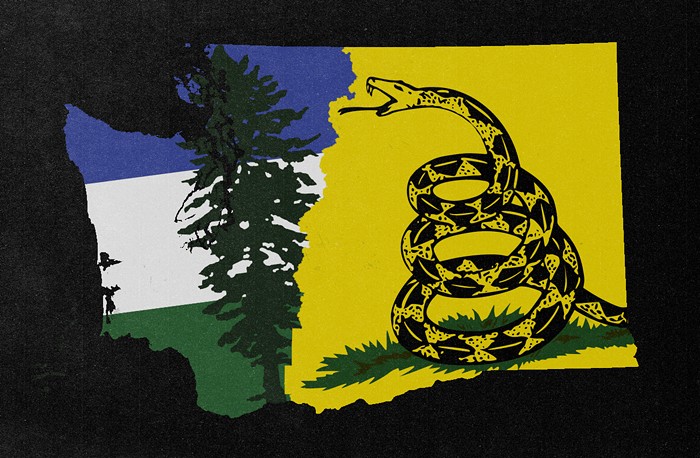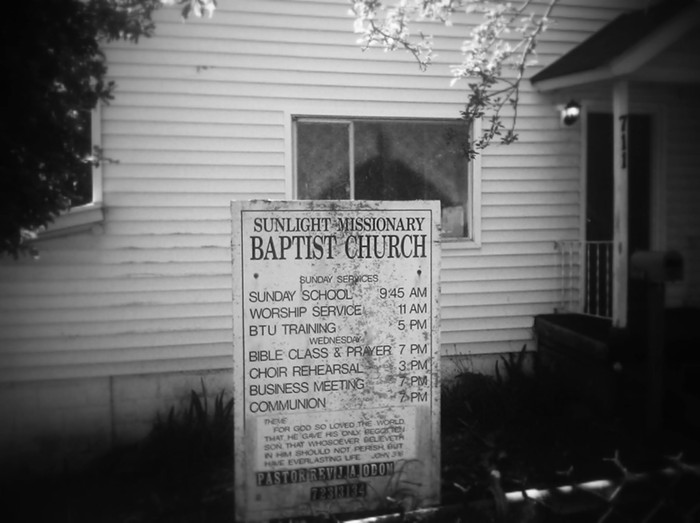
First, the bad news: Washington residents, around 1,100 of you will be killed by air pollution this year. The air you breathe is choked by nearly 100 million metric tons of pollution every year. The American Lung Association gave Seattle an “F” grade for air quality, and it’s not just a 2020 problem. (Scroll down to page 10 in this report to see how much worse your cancer risk is based on how close you live to I-5.)
What’s more, the state estimates as much as 94 million pounds of toxic pollution gets dumped into your local waterways—that’s 118 billion gallons. And here’s an alarming map of how much the ground you walk on was affected by plumes of arsenic and lead that were spread over 1,000 square miles by a smelting plant to the south of the city. The affected area includes local farmland on Vashon Island.
Your air is dirty. Your water is dirty. Even your dirt is dirty.
So now how about some good news? Let’s start here: You deserve better, and better is actually achievable. Maybe even this year.
With Washington’s 2021 legislative session scheduled to begin on January 11, there are a whole bunch of environmental overhauls in the works, and state environmental coalitions are in impressive alignment on their priorities.
Washington’s Environmental Priorities Coalition represents over 20 state nonprofits that all agree: There are three crucial areas to focus on this year if we want to get the junk out of our air, water, bodies, and world: Establishing a clean fuel standard; keeping transportation fully funded; and protecting key conservation programs in the state budget.
You want to get more granular? Okay, fine, let’s get granular. I’ll try to keep this from getting too boring by throwing in some exciting and disgusting videos.
First, you need to know that the legislature will adopt a new two-year budget this year, which includes three components—the Operating Budget (which basically pays for government to run), the Capital Budget (which pays for various services), and the Transportation Budget (which pays for giant suction tubes that fling salmon through the air, haha just kidding, it pays for buses and bikes and roads and whatnot).
All three budgets are likely to be quite tight due to COVID. Last time things were this dire, “environmental agencies and programs withstood steeper cuts than any area in state government,” says Darcy Nonemaker, Government Affairs Director with Washington Conservation Voters and Washington Environmental Council. But in the long run, those cuts don’t save money, she adds—they actually cost more by pushing costs onto individuals in terms of public health.
So in the upcoming budget, enviro groups are pushing for a handful of budgetary protections, mostly in the Capital and Transportation budgets. Some of the biggest priorities are supporting rural communities (stuff like reducing the risk of wildfire); clean energy programs (like weatherizing homes); and clean water upgrades—for example, reducing the amount of raw sewage that’s dumped into Puget Sound, like this:
Millions of gallons of raw sewage are dumping into Puget Sound after an equipment failure at sewage plant.
STORY>>https://t.co/nXtIZVxvVB pic.twitter.com/vTX5tjr7K7
— Meredith (@TweetsByMer) February 9, 2017
Overall, environmental groups want to see $600 million in funding secured in the state budget for these programs.
When it comes to transportation, “We do want to see heavy investment in environmental justice,” says Bryce Yadon with the Transportation Choices Coalition. “We’d like to see a baseline of service [protected] to make sure they’re not cutting service while we weather the COVID sales tax hit.”
One more top priority is passing HB1036, which would establish a clean fuel standard. That bill’s already passed the house twice in the last two years, but it’s run into trouble in the Senate. Transportation is the state’s biggest source of greenhouse emissions, and the bill would give polluters two choices: Either clean up your emissions, or pay extra so someone else can mitigate the damage. So ideally, we won’t face too many more summers like this:
To be honest, that choice feels a bit ghoulish—essentially saying to polluters, “it’s ok to keep killing people as long as you’re rich”—but you know what, capitalism is ghoulish, so what are you going to do. Recent polling shows overwhelming public support for a clean fuel standard, by a factor of about 2 to 1, so for crying out loud let’s just get this one done.
So there you have it, a big bundle of projects to hopefully somewhat reduce the amount of poison you eat every day. A recent study has found that the cleanest air on Earth is located in Tasmania—here’s what that looks like:
A nice goal to aspire to, or respire to, or I guess expire to if we don't pass those bills and protect those programs. Okay, 2021, let's see what we can do.















